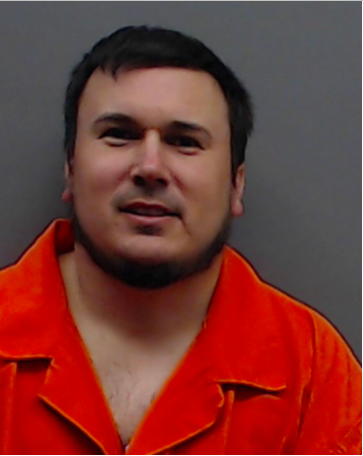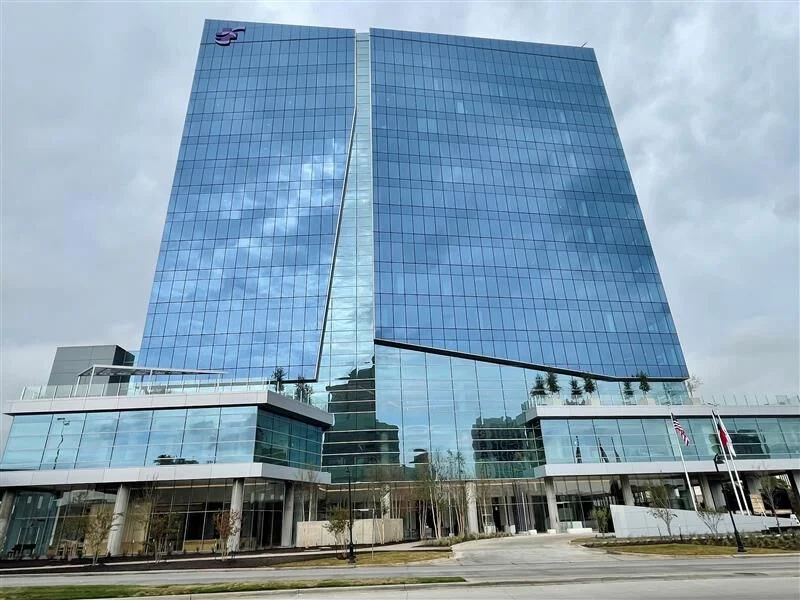Detective: Nurse accused of murder deflected police questioning, gave indirect responses in interview
Published 7:30 pm Monday, October 11, 2021

- Davis
A Tyler police detective, who interviewed a former East Texas nurse accused of killing patients, testified Monday the nurse’s responses were deflective and indirect when asked what happened to the patients.
William George Davis, 37, of Hallsville, is accused of introducing air into patients’ arterial systems while he was a nurse at Christus Trinity Mother Frances Louis and Peaches Owen Heart Hospital in Tyler, causing their deaths, according to 2018 and 2021 indictments.
Charged with capital murder of multiple people, Davis is accused of killing John Lafferty, Ronald Clark, Christopher Greenaway and Joseph Kalina. His trial began Sept. 28, and Monday was the 10th day of testimony.
Former Tyler Police Department Det. Jeff Roberts testified about his three-hour phone interview with Davis in 2018 after air was found in the brain of Kalina and Davis was later terminated from the hospital.
Roberts testified Davis said he heard of some bad outcomes among patients at the time. Roberts noted in his testimony that Davis wanted to talk and answer his questions.
During the recorded interview, Davis told Roberts he cared greatly about his patients and their health care.
Roberts testified Monday during the interview that Davis would speak about patient care in general. However, when asked specific questions about what happened to patients like Kalina, Davis would speak vaguely or in the third person about what he would do.
Davis told Roberts air in the venous system, which brings blood back to the heart and lungs, would cause complications. Davis said he didn’t know what would happen if air got in the arterial system, which brings blood to other parts of the body.
Roberts testified some of Davis’ responses did not directly answer his questions.
Regarding Kalina’s complications on Jan. 25, 2018, Davis brought up the patient’s arterial line during the conversation at first.
Kalina was recovering well from heart-related surgery when he had an unexplained neurological event overnight, causing brain damage leading to his death two years later. Scans showed air in the arterial system of Kalina’s brain. Security footage previously presented in court showed Davis was the last person to enter Kalina’s room before the complications.
During the interview, Davis said he went to Kalina’s room because an IV pump was beeping. Roberts testified data later showed an IV alert was not going off. Davis told Roberts he flushed Kalina’s arterial line when Kalina said his IV pump was bothering him.
Davis told Roberts in the interview that Dr. William Turner Jr., the heart surgeon for some of the patients who died, would blame other nurses for complications. Davis said he had good relationships with hospital nurses and doctors.
Dr. Kennith Layton, a radiologist who specializes in diagnostic radiology and neuroradiology out of Dallas, testified he reviewed brain scan images of Greenaway, Kalina, Lafferty and Clark.
When seeing Greenaway’s scan, Layton recalled thinking that he had never seen such a massive amount of air in the arteries of the brain. A neurological event leading to air in his brain caused Greenaway to have a stroke on Aug. 4, 2017, and he died days later.
Layton said the brain damage occurred after Greenaway was neurologically intact following his heart surgery.
While reviewing scans in front of the jury, Layton testified Greenaway, Kalina, Lafferty and Clark each had similar patterns of air inside their brains that would cause a stroke and possible death.
For all four patients, Layton testified the air came into the brain from an injection into the arteries and these events happened after each of their surgeries.
Pamela Henderson, a patient who in November 2017 was recovering at Christus Trinity Mother Frances Louis & Peaches Heart Hospital in Tyler, testified about how she was different from before the surgery to the present day.
Davis is charged with aggravated assault with a deadly weapon in connection with Henderson’s brain damage and injuries.
Henderson was recovering from heart valve replacement surgery at the cardiovascular ICU when she experienced an unexpected neurological event around Nov. 30, 2017. She had a stroke after air got into the arterial system of her brain.
Henderson testified she remembered hearing voices after she woke up from her surgery, and she couldn’t raise her head or other parts of her body.
“I just felt trapped in my body,” Henderson said.
After leaving the hospital, she went to physical therapy and has continued treatment over the years. She now lives in an assisted living facility in Connecticut, Henderson told the jury.
Henderson testified she still has a left-sided weakness, she lost her vision and she has difficulty walking.
“I can walk a little bit with a walker, probably 10 minutes maybe,” Henderson said.
She added before the surgery she was a regular healthy person besides her heart, but now she can’t seem to regain her balance.
Testimony continues Tuesday morning, which is when the prosecution expects to rest its case.






